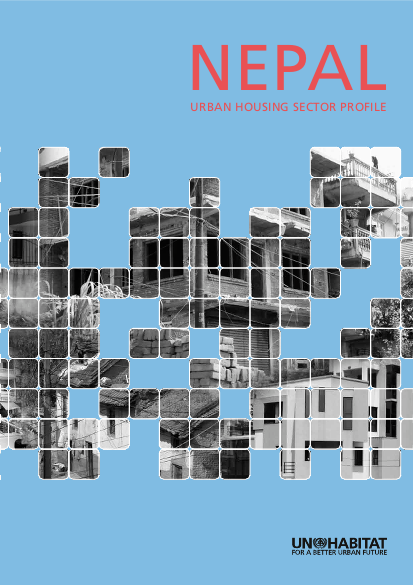
Published jointly with the Ministry of Physical Planning and Works in Nepal, this report shows, for example, that urban land prices in Nepal have increased 300 percent since 2003, putting housing increasingly out of reach for lower income residents.
At the same time, Nepal has been urbanising rapidly due to an expansion of urban areas and high rates of rural-urban migration. Though the number of squatters in Nepal is low in comparison to other South Asian countries, the situation is worsening quickly and turning into a serious social predicament. Currently some 10 percent of the country’s urban dwellers are squatters, according to the report, but this is expected to rise.
Based on research by a team of Nepalese and international experts, this report carries an analysis of the five key elements in the sector - land, basic services, housing finance, building materials and construction technologies, and labour. It gives an assessment of how these components are governed by policy, institutional and legal frameworks, and how they are linked with one another and other urban policies.
Resource collections
- Accountability to affected populations (AAP)
- UN Habitat - Urban Response Collection
- Urban Response - Urban Crisis Preparedness and Risk Reduction
- Urban Response Collection - Community Engagement and Social Cohesion
- Urban Response Collection - Economic Recovery
- Urban Response Collection - Environment and Climate Change
- Urban Response Collection - Housing, Land and Property
- Urban Response Collection - Urban Crisis Response, Recovery and Reconstruction
- Urban Response Collection - Urban Resilience